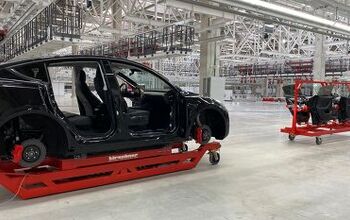Study Questions Wisdom of Privatized Law Enforcement
An estimated sixty million Americans live in a jurisdiction monitored by an automated ticketing machine. According to a report released today by the left-leaning US Public Interest Research Group (US PIRG), the trend of privatizing law enforcement raises a number of issues that put the public in those areas at risk.
“Pitfalls can arise when contracts encourage vendors to treat automated traffic enforcement systems as a profit center: by maximizing the number of tickets written, regardless of the impact on public safety; by limiting the ability of governments to set traffic safety policies according to community needs; or by constraining the ability of cities to terminate contracts early in the event that automated enforcement systems are rejected by the electorate or fail to meet safety goals,” the study explained.
Under severe budgetary pressures, local jurisdictions often sign contracts with vendors that were presented with a slick marketing campaign. Such deals often contain extremely unfavorable terms. The public is hurt by per-ticket payment systems — often disguised with “cost neutral” contract language — that ensure that the system is designed to maximize revenue, not safety. Such provisions provide a monetary incentive to increase the number of tickets issued. That leads to other provisions prohibiting cities from lengthening yellow light duration to improve safety and requiring right on red ticketing and ticket approval quotas.
“Many automated traffic law enforcement contracts create risk by penalizing municipalities or leaving them exposed to costly and disruptive lawsuits in the case of early termination of the contract, leaving taxpayers on the hook even if the camera system fails to meet community objectives,” the study noted. “Contract terms that keep municipalities locked in with heavy cancellation fees or threaten them with expensive litigation if they change their minds are not in the best interests of the public.”
The report’s authors suggested the privatized law enforcement arrangement creates a dynamic where the companies end up lobbying for the creation of more violations. In Florida, for example, red light camera companies employed forty lobbyists at a cost of over $2 million to kill legislation that would have mandated longer yellow signal times and that would have otherwise limited the use of photo ticketing. Both Redflex Traffic Systems of Australia and American Traffic Solutions (ATS) have created front groups to create the appearance that these corporate efforts have “grassroots” support.
The study concluded with recommendations about the way to structure a red light camera program “free from potential conflicts of interest.” No such principles are adhered to by any existing photo ticketing program.
A copy of the study is available in a 1mb PDF file at the source link below.
Source:
Caution: Red Light Cameras Ahead (US Public Interest Research Group, 10/27/2011)
Courtesy: Thenewspaper.com
More by The Newspaper
Latest Car Reviews
Read moreLatest Product Reviews
Read moreRecent Comments
- Varezhka I have still yet to see a Malibu on the road that didn't have a rental sticker. So yeah, GM probably lost money on every one they sold but kept it to boost their CAFE numbers.I'm personally happy that I no longer have to dread being "upgraded" to a Maxima or a Malibu anymore. And thankfully Altima is also on its way out.
- Tassos Under incompetent, affirmative action hire Mary Barra, GM has been shooting itself in the foot on a daily basis.Whether the Malibu cancellation has been one of these shootings is NOT obvious at all.GM should be run as a PROFITABLE BUSINESS and NOT as an outfit that satisfies everybody and his mother in law's pet preferences.IF the Malibu was UNPROFITABLE, it SHOULD be canceled.More generally, if its SEGMENT is Unprofitable, and HALF the makers cancel their midsize sedans, not only will it lead to the SURVIVAL OF THE FITTEST ones, but the survivors will obviously be more profitable if the LOSERS were kept being produced and the SMALL PIE of midsize sedans would yield slim pickings for every participant.SO NO, I APPROVE of the demise of the unprofitable Malibu, and hope Nissan does the same to the Altima, Hyundai with the SOnata, Mazda with the Mazda 6, and as many others as it takes to make the REMAINING players, like the Excellent, sporty Accord and the Bulletproof Reliable, cheap to maintain CAMRY, more profitable and affordable.
- GregLocock Car companies can only really sell cars that people who are new car buyers will pay a profitable price for. As it turns out fewer and fewer new car buyers want sedans. Large sedans can be nice to drive, certainly, but the number of new car buyers (the only ones that matter in this discussion) are prepared to sacrifice steering and handling for more obvious things like passenger and cargo space, or even some attempt at off roading. We know US new car buyers don't really care about handling because they fell for FWD in large cars.
- Slavuta Why is everybody sweating? Like sedans? - go buy one. Better - 2. Let CRV/RAV rust on the dealer lot. I have 3 sedans on the driveway. My neighbor - 2. Neighbors on each of our other side - 8 SUVs.
- Theflyersfan With sedans, especially, I wonder how many of those sales are to rental fleets. With the exception of the Civic and Accord, there are still rows of sedans mixed in with the RAV4s at every airport rental lot. I doubt the breakdown in sales is publicly published, so who knows... GM isn't out of the sedan business - Cadillac exists and I can't believe I'm typing this but they are actually decent - and I think they are making a huge mistake, especially if there's an extended oil price hike (cough...Iran...cough) and people want smaller and hybrids. But if one is only tied to the quarterly shareholder reports and not trends and the big picture, bad decisions like this get made.


































Comments
Join the conversation
Privatizing our prisons has created a $4B industry and many, many laws designed to keep people in these private prisons. Each empty bed costs the company money. The prison lobby is strong and getting stronger. Pretty soon, they will put folks in jail for any trumped up charge and never let you out. The prison owners get bonuses bases upon occupancy - this is not American it is more like Mussolini, a fascist.
One other stakeholder has not been mentioned in this article: insurance companies. When premium increases are tied to traffic tickets, they stand to make a lot of money from these cameras and from private law enforcement. Didn't GEICO sponsor these cameras at one time?